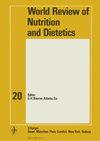Formula for deception: Corporate violations and State negligence; Labelling and advertising in breast-milk substitutes in Argentina
4区 医学
引用次数: 0
Abstract
The protection of breastfeeding is a human rights issue. It is closely related to the right that babies and mothers have to the highest attainable standard of health, to adequate nutrition and to reliable information. Argentina has incorporated the “International Code of Marketing of Breastmilk Substitutes” into different regulations in a partial and fragmentary manner, being considered a country “with some provisions of the Code included”.This article is intended to present an assessment of the level of compliance with the rules currently in force in Argentina by corporations as well as by state agencies responsible for enforcement and supervision, focusing on labelling and advertising aspects. The study comprised two different methods for data collection. First, labels found on containers of infant formulas and modified milks for children were collected and analysed according to NetCode Protocol for periodic assessments. Second, ads in digital ecosystem were collected and a content analysis of texts and images was performed.The packages of 54 types of breastmilk substitutes were photographed and examined. 100% of the examined labels of substitutes were in violation of the national rules and regulations and the provisions set forth in the Code. The most frequent reasons were nutrition and/or health claims or declarations, imagery and language idealizing the use of the product, and invitations to make contact with the company. Regarding mandatory texts or designs, violations included the omission, modification, and font size or position that minimizes their presence.In relation to advertising, a database of 440 Instagram and Facebook ads was created. The most profusely advertised products were modified milks for children from 1 year of age, marketed with a figure ‘3’, which constitutes a way of cross-promoting all the line-products. In addition, it was documented that the state agencies involved in approval and control of product labelling and the supervision of advertising either accepted or did nothing about companies’ violations. Moreover, the channels to file complaints were fragmented and usually non-responsive.All of this constitutes a “formula for deception”, an abusive marketing environment. Therefore, currently the major imperative is for Argentina to immediately apply the existing regulations, and to monitor and penalize violations. In the longer term, it is necessary to design a comprehensive law that covers all the provisions of the Code.欺骗公式:公司违规和国家疏忽;阿根廷母乳代用品的标签和广告
保护母乳喂养是一个人权问题。这与婴儿和母亲享有可达到的最高健康标准、获得充足营养和获得可靠信息的权利密切相关。阿根廷已将《国际母乳代用品销售守则》以部分和零碎的方式纳入不同的条例,被认为是一个“包含了《守则》某些条款”的国家。本文的目的是评估公司以及负责执行和监督的国家机构对阿根廷现行规则的遵守程度,重点是标签和广告方面。该研究包括两种不同的数据收集方法。首先,根据NetCode协议收集并分析了婴儿配方奶粉和儿童改性奶粉容器上的标签,以便进行定期评估。其次,收集数字生态系统中的广告,并对文本和图像进行内容分析。对54种母乳代用品的包装进行了拍照和检查。经检查的代用品标签100%不符合国家法规和《准则》的规定。最常见的原因是营养和/或健康声称或声明、将产品使用理想化的图像和语言,以及邀请与公司联系。关于强制性文本或设计,违规行为包括遗漏、修改、字体大小或位置最小化它们的存在。在广告方面,我们创建了一个包含440个Instagram和Facebook广告的数据库。广告最多的产品是针对1岁以下儿童的改性牛奶,以数字“3”进行销售,这构成了所有系列产品的交叉促销方式。此外,有文件表明,参与批准和控制产品标签以及监督广告的国家机构对公司的违规行为要么接受,要么不采取任何行动。此外,提出投诉的渠道支离破碎,通常没有回应。所有这些都构成了一个“欺骗公式”,一个滥用的营销环境。因此,目前阿根廷的当务之急是立即实施现有的条例,并监测和惩处违反规定的行为。从长期来看,有必要制定一项涵盖《治罪法》所有条款的综合性法律。
本文章由计算机程序翻译,如有差异,请以英文原文为准。
求助全文
约1分钟内获得全文
求助全文
来源期刊

World review of nutrition and dietetics
Nursing-Nutrition and Dietetics
自引率
0.00%
发文量
114
期刊介绍:
Volumes in this series consist of exceptionally thorough reviews on topics selected as either fundamental to improved understanding of human and animal nutrition, useful in resolving present controversies, or relevant to problems of social and preventive medicine that depend for their solution on progress in nutrition. Many of the individual articles have been judged as among the most comprehensive reviews ever published on the given topic. Since the first volume appeared in 1959, the series has earned repeated praise for the quality of its scholarship and the reputation of its authors.
 求助内容:
求助内容: 应助结果提醒方式:
应助结果提醒方式:


